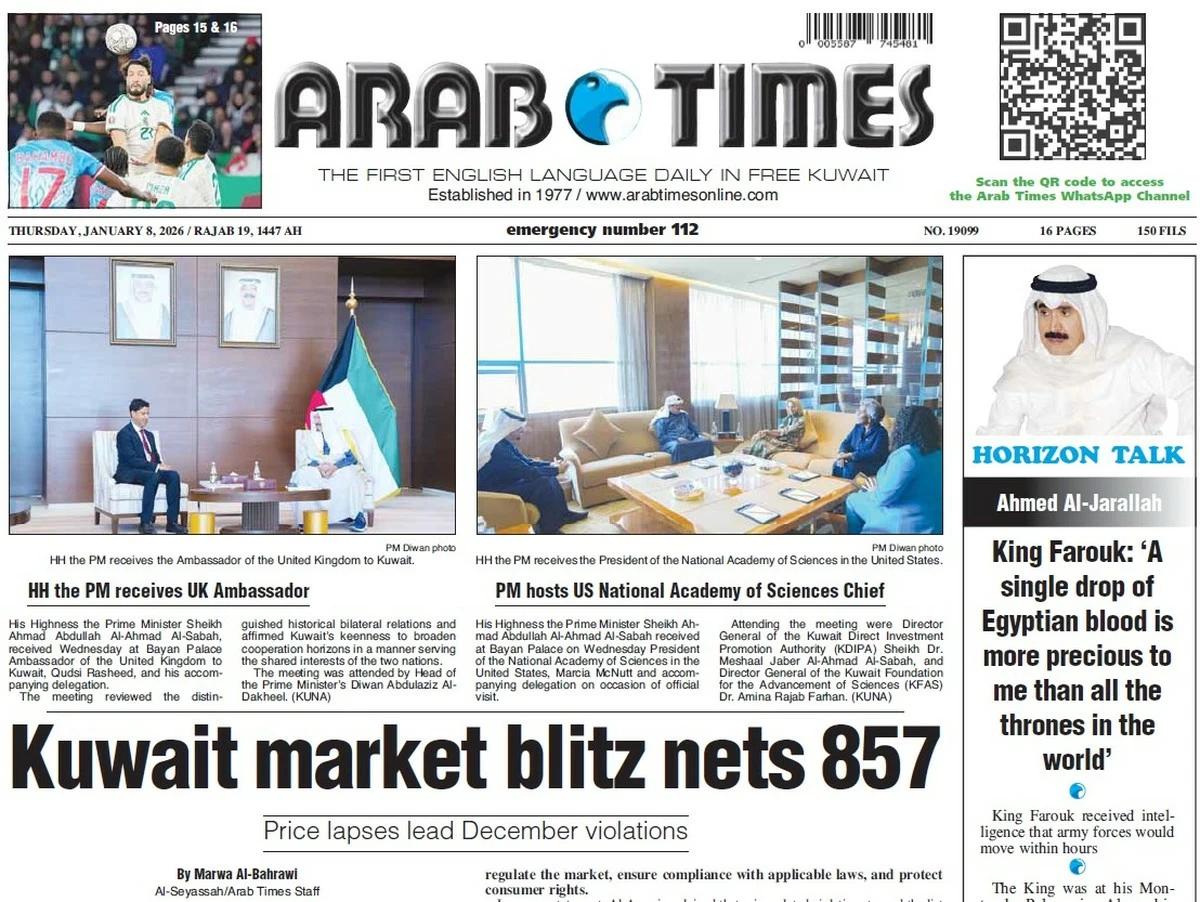13/08/2024
13/08/2024

KUWAIT CITY, Aug 13: Kuwait is currently focused on reforming its tax system to meet international tax standards and reduce its reliance on oil revenues, according to a recent economic report. The country has also signed a dual tax treaty with the UAE, marking the first such agreement with another Gulf state.
The report, published by Arabian Gulf Business Insight, cites Rami Alhadrami, Partner in Tax and Regulatory Services at BDO Accounting and Consulting in Kuwait, who stated that the Kuwaiti government is implementing various initiatives to reduce its budget deficit. These initiatives include increasing tax revenues as part of the solutions being explored.
Alhadrami noted that the tax treaty with the UAE is timely, as it aims to prevent or mitigate double taxation between the two countries. Such treaties provide tax clarity and predictability, which can enhance investment opportunities.
Corporate tax
Kuwait imposes a 15% tax on business income, primarily affecting non-Gulf foreign companies and non-Gulf foreign shareholders. However, Alhadrami pointed out that the corporate profits tax will now be extended to all companies.
The report also highlighted that the law firm DLA Piper described the introduction of a corporate profits tax in a memo to its clients as a significant shift for Kuwait. This move is seen as a step towards establishing a more equitable tax system, where companies will contribute more to government revenues.
Information exchange
Tim Dobmeier, Senior Director at Alvarez & Marsal Consulting, commented that the UAE’s efforts to establish double tax treaties with other Gulf countries are helping to create better economic conditions for conducting business in the region.
A spokesperson for Orifair Tax Consulting in the Middle East added that the treaty between the UAE and Kuwait facilitates the exchange of information between the two authorities and their international counterparts. This exchange is aimed at combating tax evasion and promoting tax justice.
Alhadrami mentioned that Kuwait had not previously imposed specific penalties on financial institutions that failed to obtain self-certifications from clients or on clients who provided inaccurate information. He also indicated that he does not expect the approval of a value-added tax (VAT) in Kuwait within the next year or two.
Priority for "added value"
DLA Piper noted that Kuwait’s decision to prioritize VAT on selective goods aligns with its economic and fiscal policy objectives. The firm explained that this strategic choice reflects a preference for a simpler and more targeted tax system that directly addresses health and environmental concerns. It also provides immediate financial revenues while being less administratively complex and more widely accepted by the public than a broad VAT.
Investment in the tax system
Al-Hadrami emphasized that transforming the tax system will require significant investment in IT infrastructure and resources from the tax authorities. This process will take time to approve and implement effectively.


